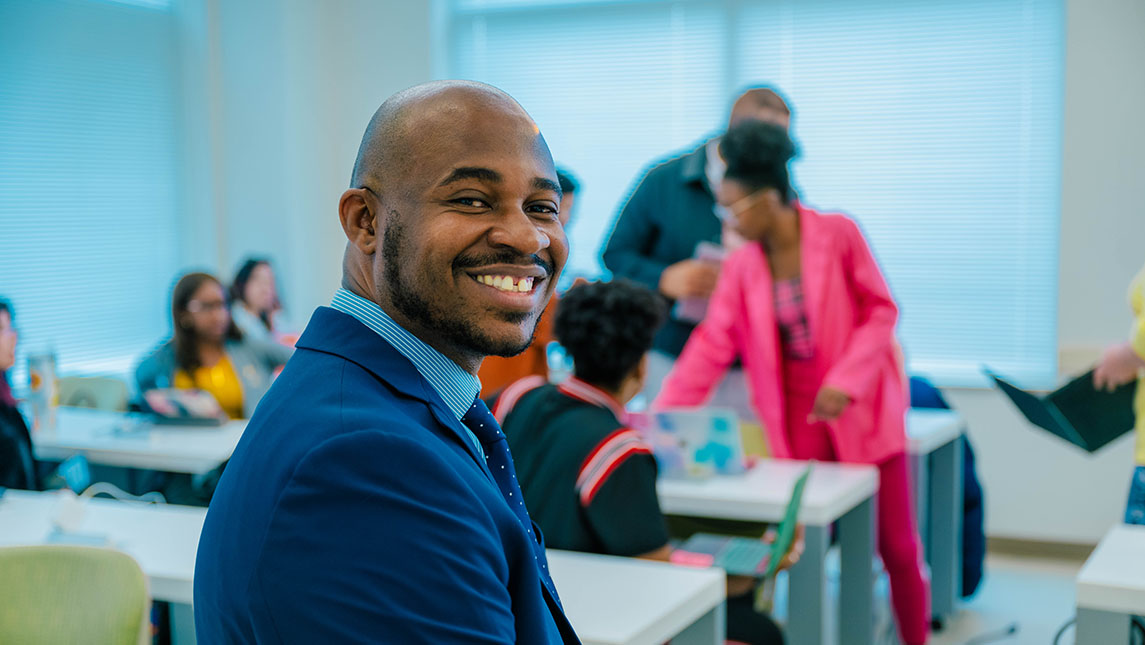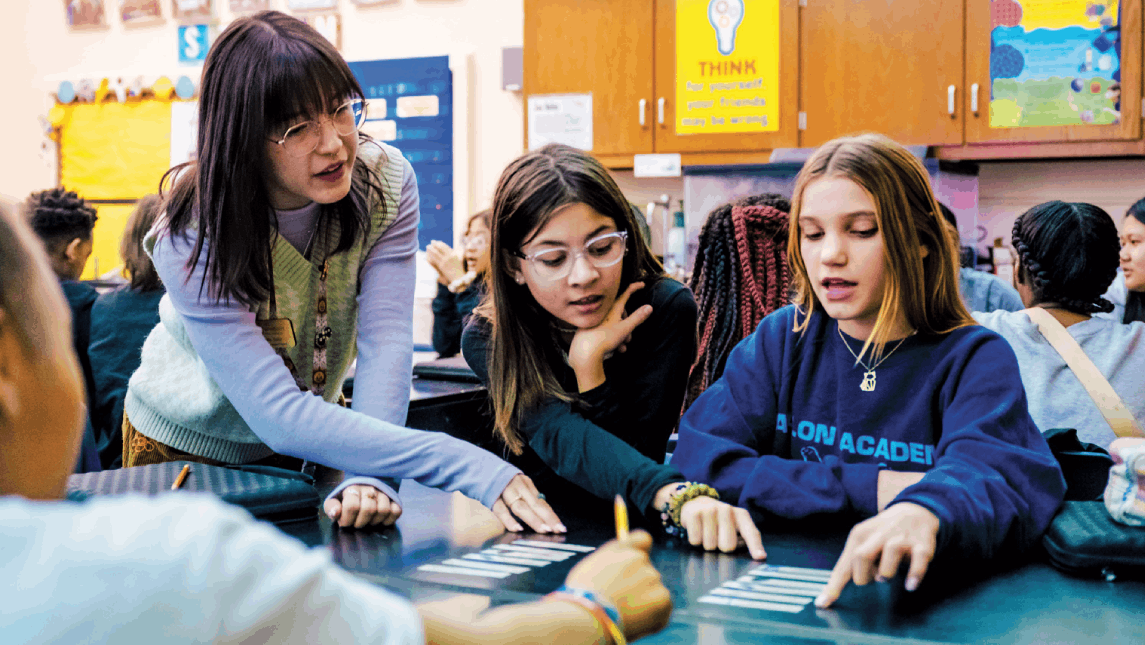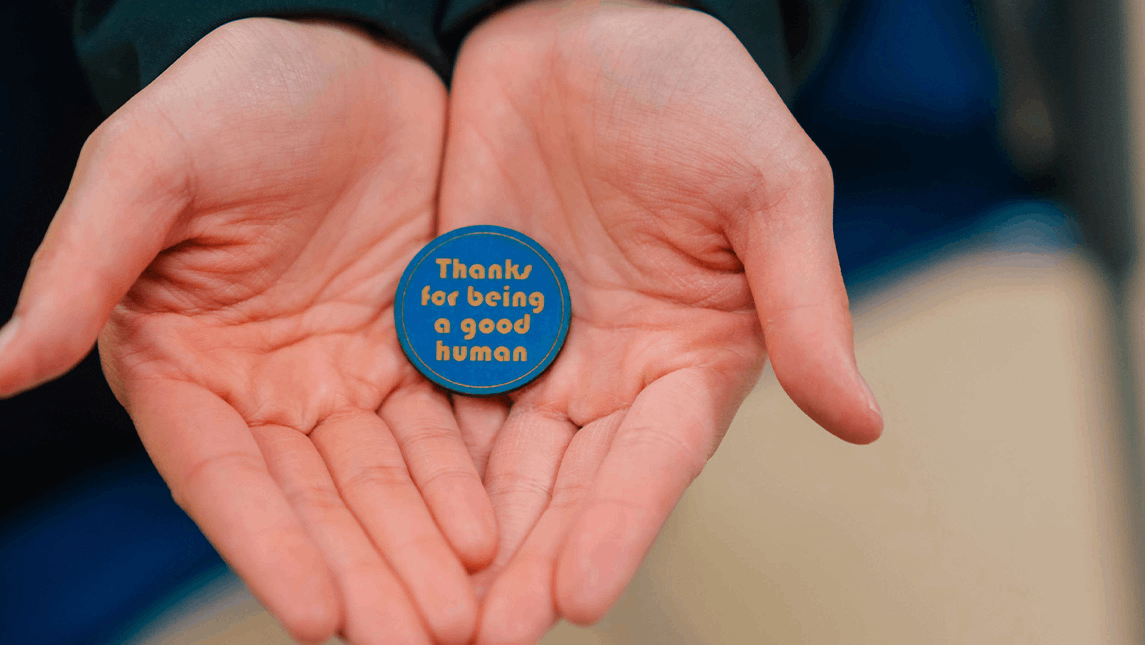This story was originally published in the 2019-2020 issue of Transform magazine. Read more stories from Transform here.

With a Ph.D. in Cultural and Educational Policy Studies from Loyola University Chicago, it seems only natural that Dr. Sophia Rodriguez’s work would revolve around advocacy. While working on her dissertation, Rodriguez studied broader issues of activism on the part of youth who were facing anti-immigrant policies, lack of educational opportunity, and resources in their public high schools in Chicago. Crediting the work of community organizations, she had the opportunity to see how community-school partnerships foster belonging and advocate for extremely marginalized students. She said, “I learned so much from organizers and youth themselves in their struggle for equity.”
“That sort of laid the foundation for my focus on how equity is promoted in schools for immigrant students,” Rodriguez said. “Even though broadly I’ve studied Latinx immigrant students, my focus in the last five years has really been on undocumented youth in public high schools.”
Trained as an ethnographer, Rodriguez’s post-doctoral longitudinal ethnographic study took place in South Carolina and serves as the foundation for her book manuscript, entitled: Undocumentedness in the U.S. South: How Youth Navigate Racialization and Immigration Status in Policy and School Contexts. Coming from Chicago, it was a bit of a culture shock — she found that although there were inequities in Chicago schools, there was still support available for immigrant children. Those infrastructures are simply not in place in the Carolinas and the context of the U.S. South, which was a unique structural issue that came to light when Rodriguez started her recent ethnographic research.
Her current grant research projects, funded by the Institute for Museum and Library Services (2016-2019) and the Spencer Foundation (2018-2020), study how educators and school-based mental health professionals can better advocate for newcomer undocumented immigrant youth. Her Institute for Museum and Library Services grant research takes place in Hartford, Connecticut and looks at a community-based partnership between a public library and a school district. Rodriguez has found that collaborative relationships among community-based groups and school districts cultivate belonging for newcomers, and public libraries are serving immigrant communities in important ways.
This led her to think about how school districts, educational leaders, school-based mental health professionals, and teachers are supporting and promoting equity for immigrant students, because of the experiences of racism, discrimination, and lack of institutional support that Rodriguez has gathered over nearly a decade of studying this population.
“As a researcher, I think that’s the kind of power of our work — I see research as a tool for advocacy,” said Rodriguez.
The Spencer Foundation project came to fruition because two of Rodriguez’s colleagues who are in school social work, one is at the University of South Carolina and one is in Chicago at Dominican University, have a long history of studying immigration policy and immigrant youth. Along with Rodriguez’s focus on immigrant children, the three researchers created an interdisciplinary team that are interested in how social workers are navigating school spaces and promoting equity for undocumented students in particular.
“Teachers face a lot of constraints; they have to manage testing and assessment, and building or implementing curricula,” Rodriguez explained. “They don’t have a lot of agency to navigate school spaces with regard to programs and services for immigrant students, especially newcomer undocumented or immigrants from mixed-status families. On the other hand, social workers function differently, in that they have a little more flexibility.”
Rodriguez and her colleagues have found that social workers are “street level bureaucrats” — they engage in the administrative side of being in a school, they know the policies and procedures, but they also have the unique training to work with kids and families.
The team will finish the first phase of their research around August 2019, which is a mixed-methods study where they draw from a national sample of public school social workers in K-12 settings to learn how they’re promoting equity and advocating for immigrant students. The trio of researchers are conducting 100 interviews with school social workers around the country.
“Of the data we’ve collected so far, it’s fascinating,” Rodriguez said. “Social workers are so highly aware of the policy constraints and the work they ‘have to do,’ but I interviewed one social worker who talked about how she basically helps undocumented kids navigate the law so that they can still access resources, which they are entitled to.”
Rodriguez and her team are studying the things that school social workers are doing to not only protect kids — they are learning how these “street-level bureaucrats” are holding that safe space for students, while not risking their own jobs and not risking outing kids in certain ways.
From the initial phase of interviews, they will then build the survey items from the qualitative data that they collect. The survey will go out to a national sample of more than 3,000 public K-12 school social workers. The goal is to disseminate that survey by December 2019, and then in the spring of 2020, they will conduct 75 follow-up interviews from the survey sample.
Beyond just looking at school demographics and how social workers are brokering resources, Rodriguez is also interested in social workers’ life histories and trajectories. There will be survey questions about their own background, their own racial ethnic identity, and their own linguistic abilities. The team argues that social workers’ identities can influence how they broker resources for immigrant students.
“We’re trying to think through all of the factors that might affect a social worker’s ability to navigate at an individual level and also at a structural level,” Rodriguez said. “From there, hopefully we’ll be able to say: Here are some recommendations and implications for the field of social work and the field of education.”
Dr. Rodriguez, along with colleagues from Auburn University, University of South Carolina, the College of Charleston, and The Citadel, have recently founded the Southeastern Immigration Studies Association (SEISA). This organization brings together scholars, community-based groups and activists, and practitioners around important issues related to immigration. The group is hosting a conference at the College of Charleston and The Citadel in Charleston, SC between February 20-22, 2020. To learn more, visit www.southeasternimmigration.com.


